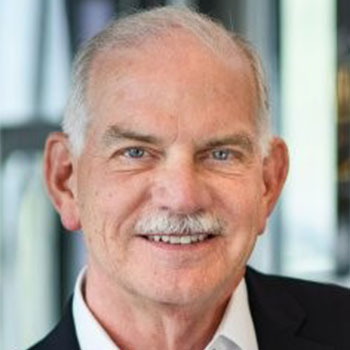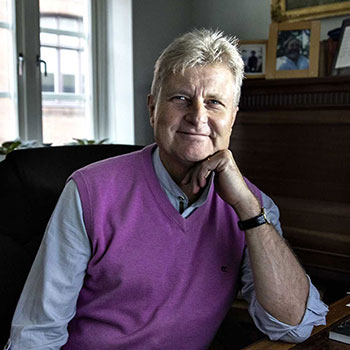Professor H Vincent Poor and Professor Eric Warrant join the likes of Sir David Attenborough, Nobel Laureates Professor Elizabeth Blackburn and Sir Fraser Stoddard as Corresponding Members of the Australian Academy of Science in 2024.

Professor H Vincent Poor has been recognised for his pioneering research in communication theory, signal processing, and wireless networks. He is currently the Michael Henry Strater University Professor at Princeton, where he is working on several projects to improve our understanding of the relationship between machine learning and wireless networks. Of particular interest to him is the use of wireless platforms for machine learning based on data collected at the edges of wireless networks – work that will contribute to the advancement of the next generation of wireless networks by enabling the use of artificial intelligence throughout such networks, which will in turn stimulate many applications accessible to the billions of users of wireless technology.
“I came of age during the 1960s when the US was developing the technologies to take humans to the moon. This was a time when science and technology were very much at the forefront of public consciousness, and this motivated me and many of my peers to pursue engineering,” Professor Poor said of his motivation to become a scientist.
“I have had rich collaborations with Australian colleagues at many Australian universities and research organisations, spanning almost 40 years. Needless to say, it is a great honor to be recognised for this work,” Professor Poor said of his election to the Academy.
Professor Eric Warrant is a Professor of Zoology, Head of the Lund Vision Group, and Head of the Division of Sensory Biology at Lund University. An Australian by birth currently residing in Sweden, Professor Warrant leads an active research group studying vision and visual navigation in nocturnal and deep-sea animals. Through an interdisciplinary approach, Professor Warrant has shed light on the visual strategies employed by nocturnal creatures, from insects to mammals, to thrive in very dim light conditions.
Professor Warrant credits his upbringing in Gosford, north of Sydney, as the first source of inspiration for him to pursue a career in entomology.

“Ours was the home of clouds of screeching rosellas racing through the dense canopy above and of bell birds, whose incessant soft calls mimic the ringing of tiny bells. But above all it was a world of insects, and I became increasingly fascinated by them,” he recalls.
Professor Warrant says his career in science was ever more enriched by the connections he built with colleagues, peers, and mentors.
“Thinking back to those early years it wasn’t clear to me back then just how much my early teachers, supervisors and mentors did to pave my path forward – and to give me those opportunities that invariably change and enrich a life.”
Professor Warrant is Visiting Fellow at the Australian National University and Adjunct Professor at the University of South Australia.
Corresponding Membership is a special category within the Fellowship, comprising eminent international scientists with strong ties to Australia who have made outstanding contributions to science. There are currently 38 Corresponding Members of the Academy.
An expert in spider venoms, a leader in plant science, an authority on star formation and an oncologist who has changed the way melanoma is treated are among 24 researchers elected as Fellows of the Australian Academy of Science. See the Academy's new Fellows for 2024.
© 2025 Australian Academy of Science